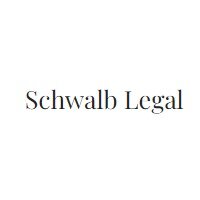Best Natural Resources Lawyers in Montreal
Share your needs with us, get contacted by law firms.
Free. Takes 2 min.
List of the best lawyers in Montreal, Canada
About Natural Resources Law in Montreal, Canada
Natural resources law in Montreal, Canada, pertains to the management, conservation, and utilization of resources such as water, minerals, flora, fauna, and land. Montreal, part of the province of Quebec, is rich in natural resources, contributing significantly to the economy through industries such as mining, forestry, and energy production. The legal framework governing these resources is complex, involving federal, provincial, and municipal regulations. These laws ensure sustainable resource development, conservation efforts, and equitable sharing of benefits derived from natural resources.
Why You May Need a Lawyer
Individuals or businesses may need legal assistance in natural resources for various reasons, including:
- Navigating complex regulatory approvals for resource exploration or exploitation.
- Resolving disputes related to land use, property rights, or environmental impact.
- Ensuring compliance with environmental protection laws.
- Negotiating contracts or agreements involving natural resource extraction or usage.
- Seeking advice on environmental assessments or impact studies.
Local Laws Overview
Natural resources law in Montreal is governed by a combination of federal and provincial legislation. Key local laws and regulations include:
- Constitution Act, 1867: Assigns jurisdiction over natural resources between the federal and provincial governments.
- Quebec Environmental Quality Act: Regulates activities that may affect the environment, including resource extraction and waste management.
- Mines Act: Governs the exploration and extraction of mineral resources in Quebec.
- Forests Act: Regulates forest management and conservation.
- Water Resources Preservation Act: Provides guidelines for the sustainable management of water bodies.
Frequently Asked Questions
What types of natural resources are found in Montreal?
Montreal and its surrounding regions have a variety of resources, including minerals, forests, and water bodies. The province of Quebec is particularly known for its mining sector and hydroelectric power.
Who regulates natural resources in Montreal?
Regulation is shared between federal, provincial, and local administrations, with key roles played by Quebec’s Ministry of Energy and Natural Resources and the Ministry of the Environment and the Fight against Climate Change.
What permits are required for resource extraction?
Permits are generally required for exploration, extraction, and any related activities. These permits ensure compliance with environmental standards and land use plans.
How are indigenous rights considered in natural resource management?
Indigenous rights are recognized and must be considered in resource management, often involving consultations with Indigenous communities affected by resource development projects.
What are the penalties for non-compliance with natural resources laws?
Penalties can include fines, suspension of operations, legal action, and remediation orders, depending on the severity of the non-compliance.
How do environmental assessments work in Montreal?
Environmental assessments evaluate the impact of proposed projects on the environment and are required for many types of resource development projects, ensuring sustainable practices are followed.
Can private individuals own natural resources in Montreal?
Private ownership of land may include rights to resources, but extraction activities typically require governmental approval and adherence to regulatory frameworks.
What role do environmental groups play in resource management?
Environmental groups often participate in public consultations, raise awareness, and advocate for sustainable resource management practices.
How are natural resource disputes resolved?
Disputes can be resolved through mediation, arbitration, or legal action, depending on the nature of the conflict and parties involved.
What is the impact of climate change on natural resource law?
Climate change has influenced the development of stricter environmental regulations and policies aimed at mitigating its impacts through sustainable resource management.
Additional Resources
For those seeking further information or assistance, the following resources may be helpful:
- Quebec Ministry of Energy and Natural Resources: Offers resources and information on laws, permits, and resource management.
- Environment and Climate Change Canada: Provides guidance on federal environmental regulations and compliance.
- Montreal Bar Association: Can connect individuals with qualified lawyers specializing in natural resources law.
- Environmental Non-Governmental Organizations: Include groups like Équiterre and Nature Quebec, focusing on conservation and sustainability.
Next Steps
If you require legal advice or assistance in the field of natural resources, follow these steps:
- Identify the specific nature of your legal need related to natural resources.
- Gather relevant documents and information related to your case or needs.
- Contact a lawyer specializing in natural resources law through the Montreal Bar Association or a reputable law firm.
- Schedule a consultation to discuss your situation, understand your rights, and explore your options.
- Follow the legal advice provided and remain compliant with all regulatory and legal requirements.
Lawzana helps you find the best lawyers and law firms in Montreal through a curated and pre-screened list of qualified legal professionals. Our platform offers rankings and detailed profiles of attorneys and law firms, allowing you to compare based on practice areas, including Natural Resources, experience, and client feedback.
Each profile includes a description of the firm's areas of practice, client reviews, team members and partners, year of establishment, spoken languages, office locations, contact information, social media presence, and any published articles or resources. Most firms on our platform speak English and are experienced in both local and international legal matters.
Get a quote from top-rated law firms in Montreal, Canada — quickly, securely, and without unnecessary hassle.
Disclaimer:
The information provided on this page is for general informational purposes only and does not constitute legal advice. While we strive to ensure the accuracy and relevance of the content, legal information may change over time, and interpretations of the law can vary. You should always consult with a qualified legal professional for advice specific to your situation.
We disclaim all liability for actions taken or not taken based on the content of this page. If you believe any information is incorrect or outdated, please contact us, and we will review and update it where appropriate.













